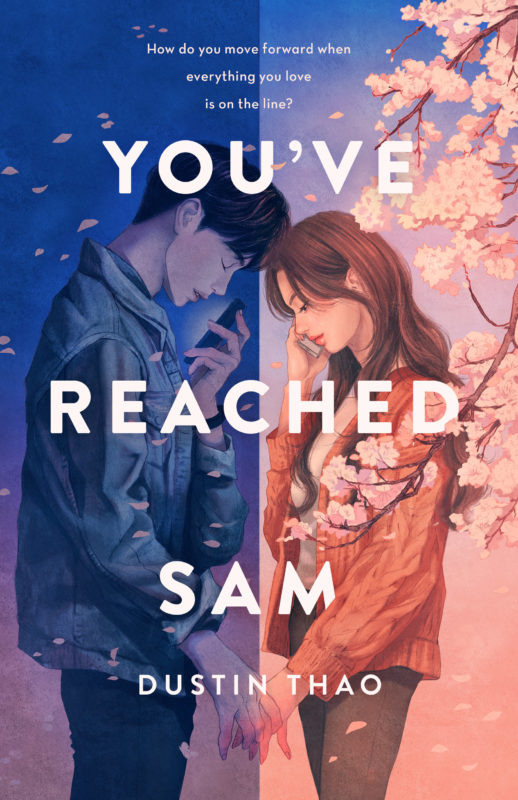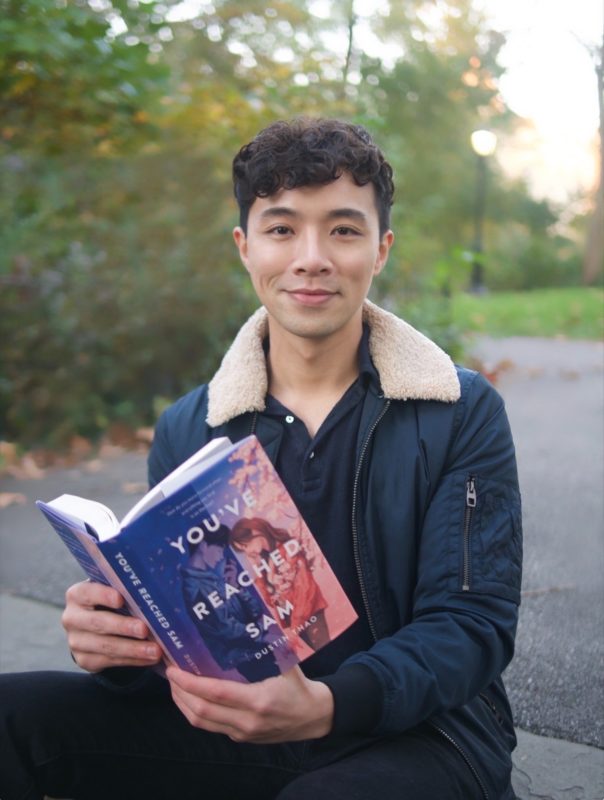
In Dustin Thao’s debut novel You’ve Reached Sam, seventeen-year-old Julie struggles to readjust to life following the sudden loss of her boyfriend Sam. In a desperate moment of wanting to hear his voice again, Julie dials Sam’s number and is shocked yet delighted when he picks up the phone.
It is a well-documented fact within every form of storytelling that there is nothing like the destructive feeling of your first heartbreak. For most teenagers, a bad breakup is the end of the world. You’ve Reached Sam takes this crushing idea a step further: what if your first heartbreak is because your boyfriend dies? What could be worse than the end of the world?
Julie truly seems to be at the end of her world. She and Sam had made plans to move interstate after high school graduation and start the next phase of their life together. Now all of this has disappeared in an instant. She was never a social butterfly, but Sam was one part of her steady social life. Now she has isolated herself, barely even speaking to her mother despite living under the same roof. Sam was on his way to pick her up from the bus stop when a truck slammed into his car. Some of his friends blame Julie for his death. Worrying that they may be right, Julie further suffocates from her grief.
The greatest triumph of You’ve Reached Sam is how it explores grief. While Julie may think that her love story is continuing, given that she has a magical chance to reconnect with Sam and revisit all the ways they fell in love, You’ve Reached Sam is really a story of loss and memory. It is an effort to answer the impossible question: how do we move on after the death of a loved one? How do we deal with being the one left behind? How are we possibly expected to keep living?
The novel’s publication after the beginning of the COVID-19 pandemic means that You’ve Reached Sam exists in a world where the themes of the novel have been brought to the front of everyone’s mind more so than before: the presence of death, loss and memory is more felt now in the midst of such a frightening climate.
You’ve Reached Sam is far from the first story to tackle the impossible question of how to move on after the death of a loved one. It joins a vast canon of YA novels that have tried to answer this question, like If I Stay by Gayle Forman and Looking for Alaska by John Green. But a more recent example of a story like You’ve Reached Sam in our new COVID-world is less expected: WandaVision. On the surface, a young adult novel about a high school teenager and a Marvel Cinematic Universe TV series about a superhero may not appear to have that much in common. But they both follow the same story: the main character suddenly loses their romantic partner only to discover a magical solution to bring them back into their life. Everything seems rosy at first and we are happy that they have reunited with their love, but as the story progresses, we realise that the magical presence of their loved one is holding them back from being able to face reality and move on. At the climax of WandaVision when Wanda finally opens herself up to the grieving process, she revisits a memory where Vision delivers the standout line of the series: ‘But what is grief, if not love persevering?’
Julie is plagued by love persevering. By clinging to the feeling of being in love with Sam, she is unable to properly deal with his death, developing a strong pattern of avoidance when it comes to anything to do with Sam’s death: attending his funeral, visiting his family, holding vigils with his friends. Vision’s words are meant as a comfort to Wanda—your negative emotion of grief comes only because you felt the positive emotion of love—but Julie’s story shows how that comfort can be harmful if it cements into true denial of reality. You’ve Reached Sam reveals how we should remember our loved ones but not at the cost of living.
One of the strengths of Thao’s writing is the realism with which Julie’s emotions constantly swing back and forth like a pendulum. This is revealed in the opening sentence of the book: ‘The second I close my eyes, the memories play, and I find myself back at the beginning.’ However, Thao’s realistic depiction of grief does clash with the traditional structure of the novel at times. Grief is often a non-linear and illogical experience. It does not lend itself to a neat three-act arc with specific milestones and story beats. It comes and goes in bursts and slams until one day you realise that you have been alright for the past few months—not happy, but alright. And that at some point you had begun the long journey of moving on. Readers look for sense and order in stories but, understandably, there is currently no sense and order in Julie’s life. The book does float back and forth in time between the present day and Julie’s three years of memories with Sam. This achieves an accurate depiction of how we remember but is not enough to steady Julie’s wild range of emotions.
You’ve Reached Sam also challenges the idea of a socially acceptable performance of grief. Julie is quickly criticised for her actions immediately after Sam’s death: she missed the funeral, she forgot to send his family flowers, she didn’t finish her homework even though she already had an extension. The problem, of course, lies in the idea that the funeral is a chance for the living to acknowledge Sam’s life and move on, while Julie is still mentally stuck with Sam in the world of the dead. But she is ostracised for taking longer than others to come to terms with his death.
You’ve Reached Sam is a heartbreaking and enlightening read that willingly embraces the full extent of grief felt by its teenage protagonist.

Julia Faragher is an Australian artist, writer, photographer and filmmaker. She is mixed-race with Vietnamese and British heritage. She was awarded a residency at Bundanon Trust through the Accessible Arts 2021 Artist-In-Residence Program and the Cook Creative Writing Prize by the Capital Arts Patrons’ Organisation for her debut manuscript. She writes reviews for ArtsHub and produces visual content for LoveOzYA.



